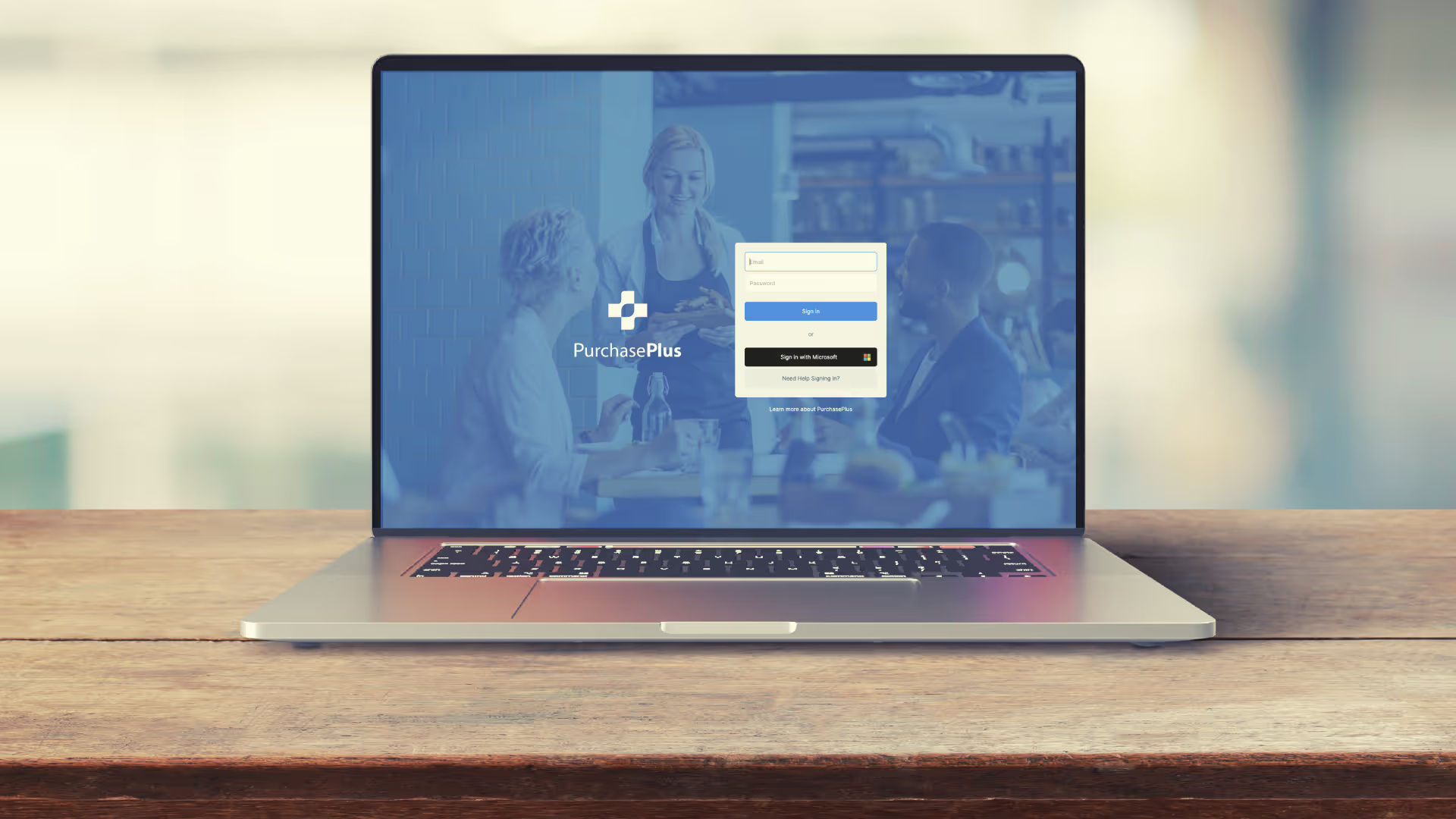Procure-to-Pay

Extreme Weather Causes Cocoa and Coffee Prices to Double and Further Food Price Volatility: Implications for the Hospitality Industry
.png)
5 Reasons Why Hotels Should Jump on the Local Purchasing Trend

Asia-Pacific Hotel Performance: Navigating 2025 with PurchasePlus

Enhancing Inventory Management in the Food Production Industry: Challenges and Solutions

Enhancing Sustainability in the $9 Trillion Hospitality Food Supply Chain

Hospitality Procurement Trends 2025: What's In and What's Out

Hotel Industry Forecast 2025: Development, Labor, F&B, and More

Hotel Profitability: The Ultimate Guide to Hotel Revenue Management

How to Increase Hotel Revenue: 7 Tips for Small Hotels

Navigating the Future: Key Hospitality Trends Shaping 2025
.avif)
Leverage Technology and Automation
Technology is fundamentally reshaping hotel restaurant operations, offering unprecedented opportunities to manage costs while maintaining exceptional service standards. Advanced tools now streamline purchasing, inventory control, and overall operational efficiency, enabling hotels to remain competitive in an increasingly challenging economic landscape. According to a recent report by the National Restaurant Association, restaurants that integrate advanced technology see an average increase in profit margins of 10-15%. This highlights the critical role of technology in driving profitability in the modern hospitality sector.
Automated Inventory Management
Efficient inventory management is paramount for reducing food waste and preventing unnecessary purchases. Automated inventory systems provide real-time tracking of ingredient usage, accurately forecast future demand, and mitigate the risk of costly over-ordering. By implementing AI-driven inventory tools, hotel restaurants can ensure they maintain optimal stock levels, minimizing spoilage and maximizing resource utilization. A case study from a large hotel chain in Las Vegas revealed that implementing an automated inventory system reduced food waste by 25% and lowered procurement costs by 18%. With PurchasePlus, hotel restaurants can manage inventory across multiple locations, automate reordering based on real-time stock levels, and gain comprehensive visibility into procurement costs, ensuring streamlined supply chain operations.
Digital Ordering Systems
The proliferation of digital ordering platforms, including mobile applications and touchless solutions, has transformed the order processing landscape in hotel restaurants. These systems enhance order accuracy, improve kitchen coordination, and provide valuable customer data for refining procurement strategies. A survey by Statista indicated that digital food delivery and ordering revenue is projected to reach $1.1 trillion by 2027, demonstrating the growing consumer preference for digital solutions. PurchasePlus seamlessly integrates with various ordering platforms, empowering restaurant managers to track ingredient consumption, optimize supplier selection, and monitor real-time pricing.
AI-Driven Customer Insights
Artificial intelligence is increasingly leveraged to analyze guest preferences, optimize menu offerings, and improve purchasing decisions. AI-powered analytics can identify demand trends, enabling restaurants to adjust procurement strategies and ensure the consistent availability of high-performing dishes. A real-world example is a hotel restaurant in London that used AI to analyze customer feedback and sales data, resulting in a 12% increase in sales of their signature dishes. PurchasePlus utilizes AI to analyze supplier performance, ingredient costs, and order history, facilitating informed purchasing decisions that maximize profitability.
Automation in Scheduling and Payroll
Labor costs represent a significant challenge for hotel restaurants. Automated scheduling systems enable managers to optimize staff allocation based on forecasted demand, reducing payroll expenses while maintaining service quality. Payroll automation also minimizes errors and saves valuable administrative time. A hotel in Chicago reported a 15% reduction in labor costs after implementing automated scheduling and payroll systems. While PurchasePlus primarily focuses on procurement, its automated financial tools facilitate efficient management of supplier payments, reducing manual errors and ensuring timely transactions.
Optimize Menu Offerings
A well-designed menu is crucial for driving profitability in hotel restaurants. By leveraging data and analytics, restaurants can refine their offerings to focus on high-margin items that generate revenue, while eliminating low-performing dishes.
Menu Analysis
Data-driven insights enable restaurants to evaluate the profitability of each dish. Identifying and prioritizing high-margin menu items ensures that every dish contributes positively to the bottom line. With PurchasePlus, restaurants can track ingredient costs in real-time, empowering managers to adjust menu prices and maximize profitability without compromising quality. A restaurant in Miami increased its gross profit margin by 10% through effective menu analysis.
Seasonal Menus and Limited Time Offers
Adopting seasonal menus and limited-time offers allows restaurants to manage ingredient costs more effectively. By sourcing ingredients at their peak supply, restaurants can reduce procurement expenses and enhance overall profitability. These strategies also create excitement and drive customer interest.
Menu Simplification
Simplifying menus improves kitchen efficiency and reduces operational costs. A focused menu allows for better control over ingredient purchases, minimizing waste and ensuring faster meal preparation. A hotel in Barcelona reduced food preparation time by 20% by simplifying its menu.
Data Driven Decision Making
Analyzing key performance indicators (KPIs) empowers hotel restaurants to optimize operations, reduce costs, and drive revenue. Data analytics provide valuable insights into guest preferences, supplier performance, and purchasing trends, facilitating smarter procurement decisions. With PurchasePlus analytics, restaurants can compare supplier pricing, track spending trends, and ensure cost-effective purchasing decisions.
Monitoring KPIs
Tracking sales trends, cost fluctuations, and customer preferences allows hotel restaurants to identify areas for improvement. Performance monitoring ensures that purchasing decisions align with actual demand, minimizing waste and excess costs.
Customer Preferences
Utilizing AI and data analytics to track guest preferences enables restaurants to make informed menu adjustments. By identifying customer demand patterns, hotels can offer the right products while avoiding unnecessary inventory buildup.
Operational Efficiency
Advanced analytics help restaurant managers identify inefficiencies in the supply chain, staffing, and procurement. AI-powered tools ensure that hotel restaurants operate as cost-effectively as possible.
Cost Control and Efficiency
Maintaining profitability requires hotels to monitor costs at every level. Effective procurement and supplier management play a crucial role in keeping expenses under control while ensuring consistent food quality.
Supplier Contracts
Regularly reviewing and renegotiating supplier contracts ensures that hotel restaurants secure the best pricing and terms. Building long-term relationships with reliable vendors minimizes disruptions and enhances purchasing power. With PurchasePlus, hotel restaurants can automate contract negotiations, compare supplier pricing, and access a global marketplace of vetted vendors.
Energy Efficiency
Hotels can reduce operational costs by implementing energy-saving solutions, such as energy-efficient kitchen equipment and lighting. Reducing energy expenses directly contributes to overall financial sustainability. A hotel chain in California reported a 15% reduction in energy costs after upgrading to energy-efficient equipment.
Operational Optimization
Streamlining kitchen workflows and automating manual tasks reduces labor costs and increases service efficiency. By eliminating unnecessary steps in food preparation and procurement, hotels can cut expenses while maintaining high-quality standards.
The Need for a Modern Accounting Platform
Managing hotel restaurant finances requires an advanced accounting system that integrates procurement, inventory, and operational data. AI-powered financial tools provide real-time visibility into spending, enabling restaurants to control costs and allocate resources effectively. Hotels that implement automated accounting and accounts payable solutions experience fewer errors, faster invoice processing, and enhanced financial oversight. AI-driven platforms, such as those highlighted in "The Quiet Revolution: How AI is Automating Accounts Payable," optimize financial workflows, ensuring accurate expense tracking and improved cost management. With PurchasePlus, hotel restaurants can automate invoice processing, track spending in real-time, and optimize procurement budgeting—all within a centralized platform.
Final Thoughts
Hotel restaurant profitability in 2025 depends on smart procurement, data-driven decision-making, and cost-effective operational strategies. By adopting technology that enhances supplier relationships, inventory management, and financial tracking, hotel restaurants can sustain profitability while delivering exceptional guest experiences. PurchasePlus offers a worldwide buyer-supplier marketplace designed for the hospitality industry, providing real-time pricing insights, automated purchasing tools, and AI-powered financial analytics. This platform helps hotel restaurants optimize supplier selection, reduce costs, manage inventory, and automate financial processes, ensuring higher profit margins without compromising quality.